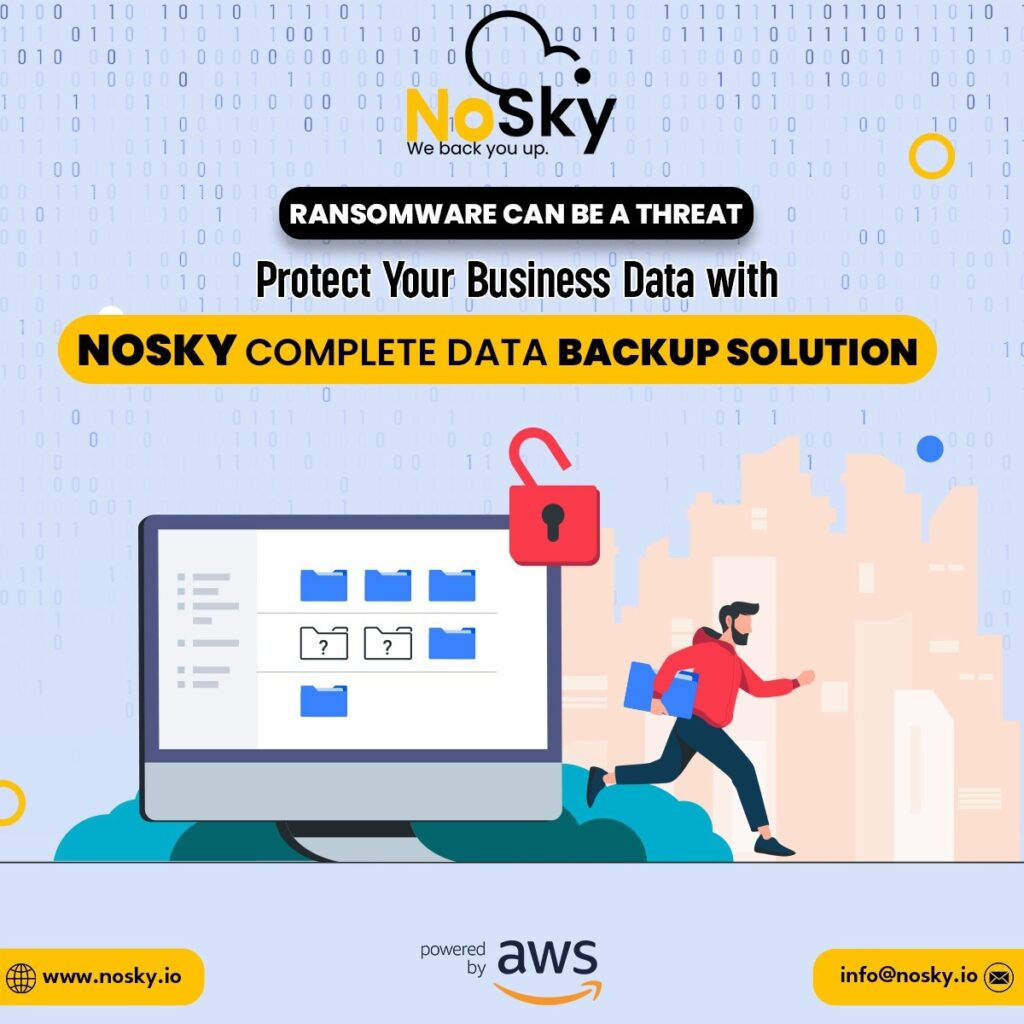- Yaman Mishra
- 0 Comments
- 3833 Views
What You Need to Know

In today’s world of digital data and cloud computing, having an effective plan for backing up your important documents, files, and data is crucial. Fortunately, cloud data backup makes it easy to ensure every aspect of your business operations is secure and reliably backed up – even in the event of a system outage or device failure. In this article we’ll take a look at what cloud-based data backup entails; explore some of the benefits it offers; discuss different approaches to implementation; provide tips on managing backups effectively; and outline common pitfalls you should be aware of. With our beginner’s guide to cloud data offsite storage as your guide, you’re sure to find an efficient solution that will help protect all your valuable files from unexpected disasters.
What is Cloud Data Backup?
Cloud data backup is a type of data storage where copies of important files, documents and other information are stored on remote servers by a third-party service provider. This form of backup allows access to the backed up information from anywhere with internet access, giving users enhanced flexibility for disaster recovery and business continuity strategies. One key advantage to cloud data backup is the ability to store large amounts of data without having to invest in your own infrastructure or hardware. The costs associated with maintaining and upgrading equipment can be expensive, but using cloud-based storage services provides an affordable solution that scales as needed.While there are many benefits to cloud-based backups , it’s essential to note that any sensitive or confidential information being saved should be protected through optimal security measures such as encryption. Inadequate protection could put customer information at risk and may leave you open for liability issues in case of a breach.
Benefits of Cloud Data Backup
One of the significant benefits of using cloud data backup is its scalability. With traditional backup systems, you have to physically purchase more storage space as your data grows, but with cloud-based backups, you don’t need to worry about capacity again. Cloud providers offer diverse options for both storage space and service plans that can easily accommodate a growing business’s needs without requiring investments in hardware or infrastructure. Another advantage of cloud data backup is the increased security measures offered by most reputable providers. Most small businesses lack the resources to maintain robust security protocols on-premise, which makes their private network vulnerable to cyber-attacks or system failures. But by choosing a reliable provider and deploying off-site backups through their platform eliminates the risk emanating from having all your eggs in one basket – supplying extra layers of protection against data loss due to theft or natural disasters that may affect physical equipment. Taking into consideration facilities like flexibility and adaptability, ease-of-use,and availability-related advantages; overall cost-benefit sufficiency compared with other alternatives – In conclusion ,it becomes clear how beneficial it can be for companies today irrespective of size .
Different Approaches to Cloud Data Backup
There are various approaches to cloud data backup that organizations can choose from depending on their needs, budget and IT infrastructure. One of the most common methods is using a cloud-based backup service provider, which typically involves paying a monthly or yearly subscription fee to have your data backed up to the provider’s servers via an internet connection. This approach offers convenience with minimal hardware and maintenance costs but may result in slower transfer speeds due to bandwidth limitations. Another option is building a private cloud for backups using in-house staff and technology or outsourcing it to a third-party IT service provider. This enables businesses to customize their backup solutions while retaining more control over their data security and access policies. However, it comes at higher upfront investments in hardware, software licenses as well as dedicated staff time and expertise for maintenance. Finally yet importantly is hybrid cloud backup that combines elements of both public (e.g., Amazon Web Services) and private clouds (e.g., OpenStack) tailored towards meeting different workloads’ changing demands at any given time. It provides the flexibility required by modern distributed systems while still maintaining enterprise-level reliability complying with regulatory requirements concerning data sovereignty/location issues. In conclusion, choosing an appropriate approach requires carefully balancing cost-effectiveness against performance/efficiency levels desired within one’s organization context – taking into account factors such as compliance obligations, resource constraints/budgets available – before deciding upon whether Cloud Backup should happen partially or fully integrated into existing infrastructures(if any).
Tips for Managing Cloud Data Backups
When it comes to managing cloud data backups, there are some tips that can help ensure your valuable information is protected and readily available. First, it’s important to establish a regular backup schedule and stick with it so you don’t forget or miss critical data. Depending on the size of your organization and volume of data, scheduling daily or weekly backups might be sufficient. Next, consider using multiple backup options for added redundancy in case one method fails. This could include storing copies of files on external hard drives as well as uploading to the cloud. Also, make sure all employees who have access to company information are aware of backup policies and procedures so they can follow them consistently. Finally, regularly test your backups by restoring them to another location or device to ensure everything is working properly. It’s better to discover issues during testing rather than during an actual emergency situation when time is critical. By following these guidelines for managing cloud data backups, you can have peace of mind knowing your business operations will remain secure even if unexpected events occur.
Common Pitfalls with Cloud Data Backup
While cloud data backup is a popular option for organizations to store important files and data, there are some common pitfalls that should be avoided. One of these is assuming that the cloud service provider will automatically handle all aspects of backups without any input from the user. It’s still essential to ensure regular backups are made, monitor their progress, and test the recovery process periodically. Another pitfall is not having enough bandwidth or internet connectivity to support continuous syncing with cloud storage. This can lead to delays in uploading larger files which could eventually result in incomplete backups or even performance issues on your device. Therefore, it’s essential to have reliable network infrastructure capable of supporting data transfer demands effectively-alternatively reduced quantities but frequent uploads. Lastly, neglecting security concerns can also pose significant risks when it comes to cloud-based backup solutions. Organizations must carefully vet potential service providers and implement strong password policies- two-factor authentication, i.e., 2FA-required -, encryption standards as well as routinely verifying Who has access? What kind of access? When was granting permission or Was someone recently terminated?, among others rigorous secure steps measure before During and after storing company/private sensitive materials securely on a remote server backup solution.
